Brainstorm (1983)
“Don’t take my project. This is MY project!”
|
Synopsis: |
|
Response to Peary’s Review: Peary claims that the film “has enormous gaps” but, for the most part, I disagree. I’m impressed by how screenwriters Bruce Joel Rubin and Robert Stitzel smartly explore the various ethical ramifications of a virtual reality device which we have yet to experience, but whose arrival surely can’t be that far away. The device’s potential for “good” is made abundantly clear throughout the first half hour of the film: in addition to the obvious money-making application of allowing people to experience a world of visceral thrills (roller coaster rides, sweeping views of majestic mountains) without ever leaving their chairs, it miraculously helps bring Walken and his estranged wife (Wood) back together by allowing them to relive the glory days of their early romance. The U.S. military, of course, has much more nefarious plans for the headset (torture, anyone?), but the screenwriters draw an appropriately sticky line between these two extremes, as demonstrated in the scene in which a naive employee (Joe Dorsey) decides to splice a strategic section of a sex tape and run it continuously, only to become mildly brain damaged as a result. The most exciting sequence in the movie is undoubtedly Fletcher’s dramatic heart attack, which — scientist that she is until the very end — she struggles to record so that others can study the experience of dying. It’s the natural extension of this crucial plot element (in which Walken “plays” the tape and sees visions of heaven and hell) which most reviewers take issue with — and it’s certainly easy to agree that the cheesy special effects don’t “do justice” to the experience. Yet I would counter, what could? How can any of us “know” what this ultimate experience might look and feel like — and then transfer this effectively to a two-dimensional screen? Where the film does begin to lose steam for me, ironically, is during its final climactic half-hour, as Walken and Wood valiantly fight against the Powers That Be to rescue the tape and destroy the military’s mass-operations facility. While it’s somewhat amusing to hear the couple voicing banalities to each other over the phone as a cover-up (it works — nobody pays them any attention), the action sequences — including machines going haywire and suds spilling out across the floor — come across as both juvenile and out-of-place. Despite this flaw, however, Brainstorm remains undeniably provocative sci-fi viewing, and should be seen once by all film fanatics. Note: Trumbull only helmed one other film — 1972’s equally flawed but engaging Silent Running. Redeeming Qualities and Moments:
Must See? Categories
Links: |
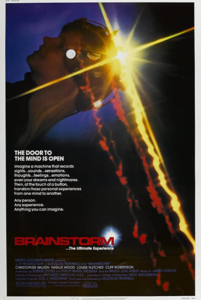
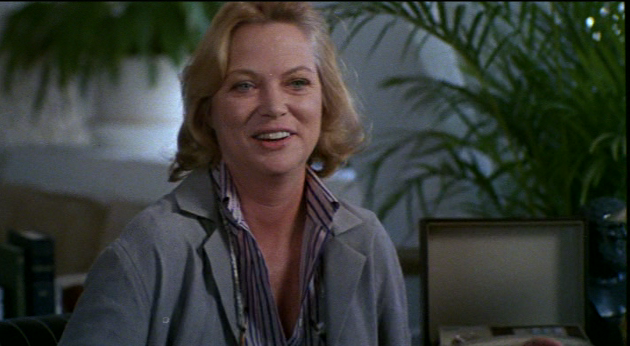
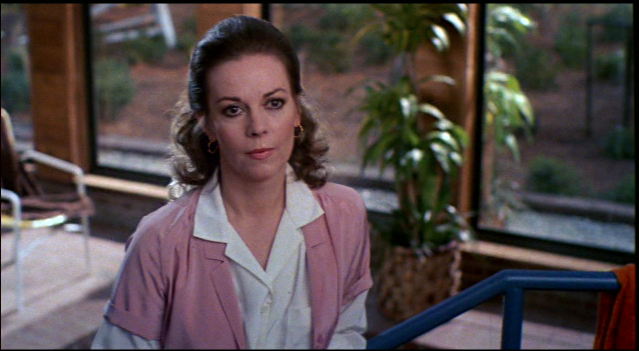
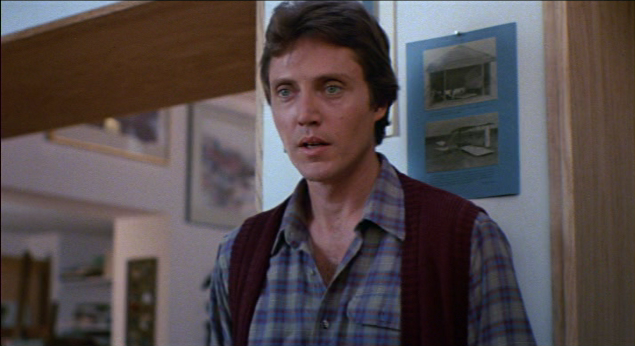
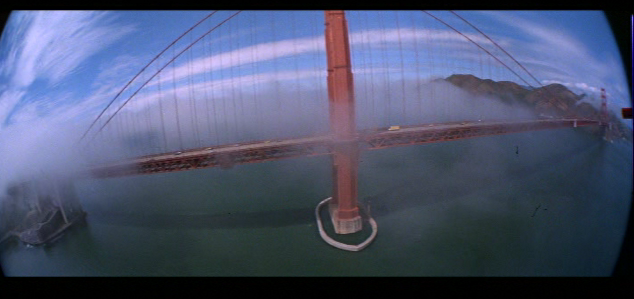
2 thoughts on “Brainstorm (1983)”
Not a must.
I agree that the film does have “a provocative premise” and “impressive visual effects” (though not nearly enough to make the overall film worthwhile), but I’m afraid I have to lean a bit toward Peary on this one.
Frankly, it bores me stiff. It starts off in a very haphazard fashion, and it takes us too long to realize what the h is going on. And from that point, it’s hard to care. Yeah, there’s a little tension in there re: how the military will use the techology but – so?
I think Peary is right in saying that the performances are rather atrocious across the board (the odd ok scene notwithstanding). But I find it hard to blame the actors: they have stilted dialogue to deliver most of the time and their director does not really seem all that interested in them. (Sad to say, Wood fares particularly badly here.)
Don’t really have all that much else to say about this one. I think it’s generally a snore.
⭐️⭐️⭐️ out of ⭐️⭐️⭐️⭐️⭐️
The bits where the screen expands both in aspect ratio and the basic stereo tracks opens up into 5.1 are very effective and the story is very intriguing.
However, the characters aren’t the most dynamic and the government conspiracy elements are old hat even in 1983. But, it’s still an entertaining and generally engrossing thriller.
Not must see though.